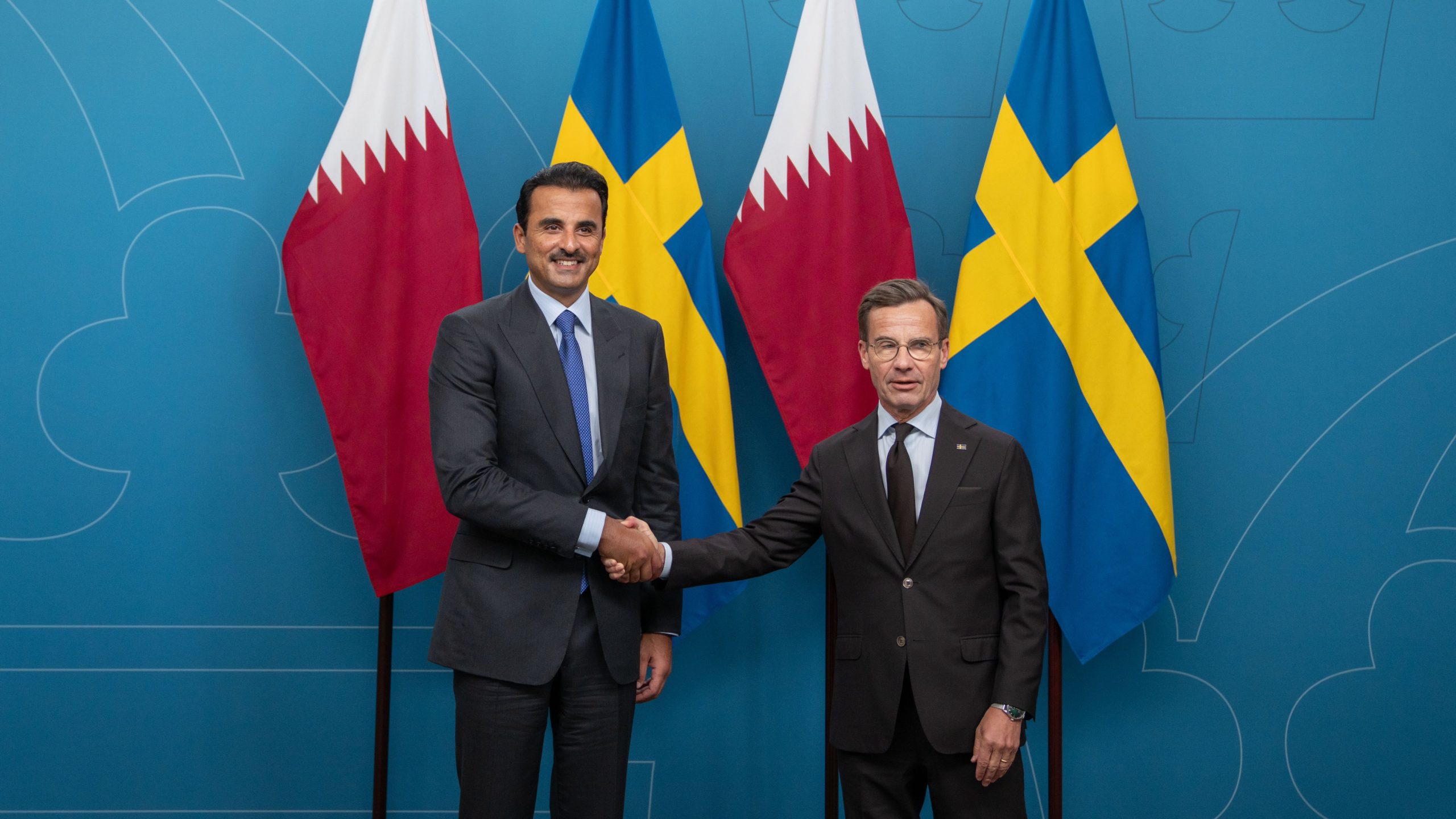The Qatari leader’s visit to Europe comes amid ongoing diplomatic efforts by the Gulf state in hopes of reaching a ceasefire in the Gaza Strip and a captives release deal between Israel and Hamas.
Qatar’s Amir Sheikh Tamim bin Hamad Al-Thani and Swedish Prime Minister Ulf Kristersson have discussed bilateral relations in several fields including investment, economy, and energy during the Qatari leader’s European tour.
International cooperation, particularly regarding the latest developments in the Gaza Strip and the occupied West Bank, were also discussed in Stockholm.
“Bilateral relations between the two countries and ways to develop them were discussed[…]in addition to regional and international developments, especially in the Gaza Strip and the occupied Palestinian territories,” the Amiri Diwan said in a statement on Tuesday.
The amir attended a luncheon hosted by Sweden’s King Carl XVI Gustav and Queen Silvia at the Royal Palace in Stockholm. His visit to Sweden is part of a regional tour that will include stops in Norway and Finland.
Sheikh Tamim also met with Swedish parliament speaker Andreas Norlen on Tuesday.
“During the meeting, they reviewed bilateral relations between the two countries and ways to develop them in various fields, and exchanged experiences in relevant fields, in addition to discussing a number of topics of mutual interest,” the Amiri Diwan said.
Similar discussions took place on Monday between Sheikh Tamim and Swedish foreign minister Tobias Billstrom at the Qatari leader’s residence in Stockholm.
Gaza ceasefire efforts
The Qatari leader’s visit to Europe comes amid ongoing diplomatic efforts by the Gulf state in hopes of reaching a ceasefire in the Gaza Strip and a captives release deal between Israel and Hamas.
Qatar, the host of a Hamas political office, has been playing a central mediation role alongside Egypt and the United States for the past 10 months.
The negotiations have been stalled for an extended period due to Israeli Prime Minister Benjamin Netanyahu’s insistence on continuing the war in the Gaza Strip, which has resulted in the killing of at least 40,786 people, widespread destruction, and a severe humanitarian crisis.
Some of the current key sticking points in the talks include Netanyahu’s repeated rejection of Israel’s full withdrawal from the Philadelphi Corridor, Rafah Crossing and the Netzarim Corridor.
Hamas has also continued the negotiations despite Israel’s assassination of its political chief Ismail Haniyeh on July 31 in Tehran. To date, Israel has yet to claim responsibility for the killing, despite global condemnations including mediators Qatar and Egypt.
West Bank raids
Meanwhile, Israel has been carrying out a large-scale military raid in the occupied West Bank for nearly a week, marking the biggest incursion in the territory since 2002. At least 31 Palestinians have been killed, including 18 in Jenin, six in Tulkarem, and four in Tubas.
Israeli troops with bulldozers razed through the streets of Jenin on Monday as occupation forces raided houses of Palestinians across the West Bank.
Israel has scaled up its deadly attacks in the West Bank since the beginning of its war on the Gaza Strip. According to Palestine’s news agency Wafa, Israel has killed at least 683 Palestinians in the occupied territory since October 7.
The detainment campaign has also increased during the same period, with more than 10,400 Palestinians detained.







